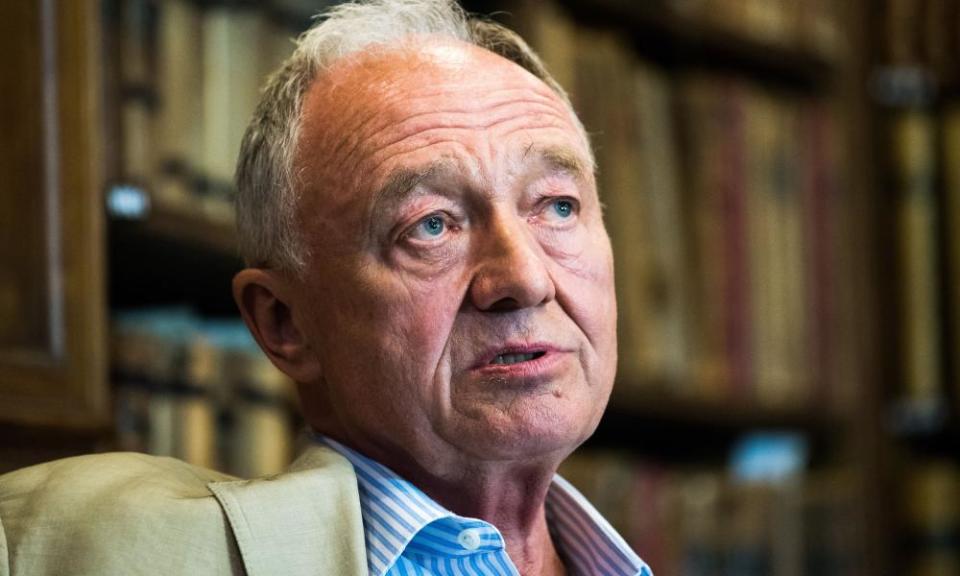Ken Livingstone's political star burns out shrouded in controversy

It was a political career that was never short of controversy but it has ended in little more than ignominy. Ken Livingstone was the man who twice captured the top job in London government, once defying Tony Blair to win as an independent candidate and become mayor in 2000 – two decades after a post-election coup catapulted to him to the leadership of the Greater London council in 1981.
But over the past two years Livingstone’s reputation has been disfigured by repeated rows about antisemitism, in which the former Labour MP and mayor has proved himself unable to abandon remarks that caused offence to so many with the party and beyond.
Livingstone’s long final act began in April 2016, when Labour was convulsed by its first row about antisemitism in the party. Naz Shah, an MP, had apologised and was briefly suspended from the party after she shared a Facebook posting in which had suggested relocating Israel to the US as a “solution for the Israel-Palestine conflict”.
The former mayor took it upon himself to defend Shah, and gave an interview in which he argued that Adolf Hitler has supported Zionism, the existence of a Jewish state, “before he went mad and ended up killing 6 million Jews” and accused critics of Jeremy Corbyn of trying to whip up the issue. “Frankly, there’s been an attempt to smear Jeremy Corbyn and his associates as antisemitic from the moment he became leader,” he said.
It was not meant to be like this. Livingstone, a south Londoner, spent almost all his adult life in London Labour politics. He emerged as a public figure in 1981, when he seized the leadership of the Greater London council after Labour won an election; then in office he tried to cut fares until the courts struck down the Fares Fair policy, and irritated Margaret Thatcher with support for nuclear disarmament and Irish republicanism. The GLC was abolished and Livingstone became an MP for Brent East, but as Labour turned to New Labour he had no hope of ministerial office and became a marginal figure in the party.
Until, that was, Blair chose to reform London government and create the job of mayor, a position that might as well have been created for Livingstone himself. Frank Dobson narrowly beat Livingstone for the Labour nomination, but Livingstone won a majority of the membership – and more to the point, won the following mayoral election with ease. Blair said he would be “a disaster” but in fact Livingstone ran London pragmatically and he was returned to the Labour fold to win again in 2004 – before finally Boris Johnson halted him in his tracks eight years later. As mayor he introduced the congestion charge, the Oyster travel card and supported the successful bid for the Olympics.
Throughout his time in charge in London, Livingstone was usually able to carefully judge his controversies, starting rows but often (although not always) able to demonstrate he had something of a point. In 2003, as George W Bush prepared to visit London, he called the then US president “the most dangerous man on the planet” – a form of words that, while few others in political office might have adopted, many voters would have agreed with.
But others were harder to brush off: such as his row with the Jewish Evening Standard reporter Oliver Finegold whom he likened to a “concentration camp guard”, which earned him a month’s suspension from being mayor.
Meanwhile, the more recent antisemitism row dragged on. Labour’s slow moving disputes panel made a ruling in April 2017, a year on from his initial suspension, Livingstone was suspended for another year and told he could not stand for office or represent the party at any level. He said that the hearing was “like sitting in a court in North Korea” and complained it offended natural justice because it was heard in private.
However, the failure to expel him prompting uproar in large parts of the Labour party. Corbyn’s patience snapped and Livingstone’s case was referred to the party’s ruling national executive committee for a final decision “after representations from party members”.
Still, the party moved slowly to resolve the case. When Labour was once again convulsed by antisemitism in March this year, it was Livingstone’s name that repeatedly came up. That followed a row that flared after an old Facebook posting from Corbyn emerged, in which the Labour leader had questioned why a clearly antisemitic mural in east London was being painted over. Then serious political damage was done in the last round of local government elections, when Labour failed to win Barnet council in London, as had been expected, when Jewish voters turned away from Labour.
Livingstone’s final conclusion was that the long running row had become “a distraction” as he resigned his membership of Labour party before the final hearing ever took place; it was perhaps the first time in two years that he showed some recognition of the damage his obsession with the topic of Hitler and Zionism had done to himself and his reputation too.

 Yahoo News
Yahoo News 